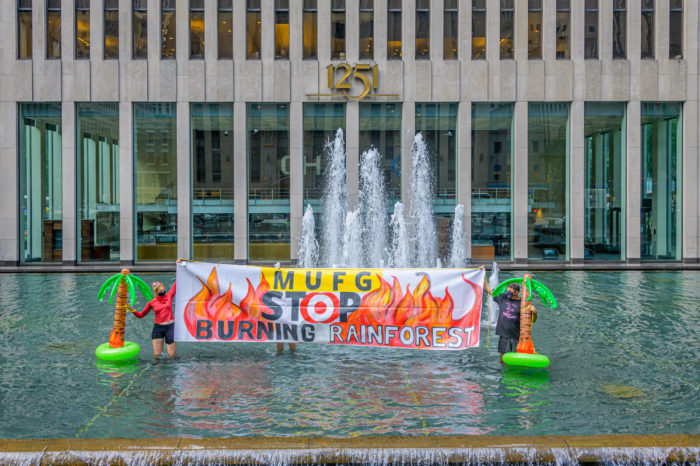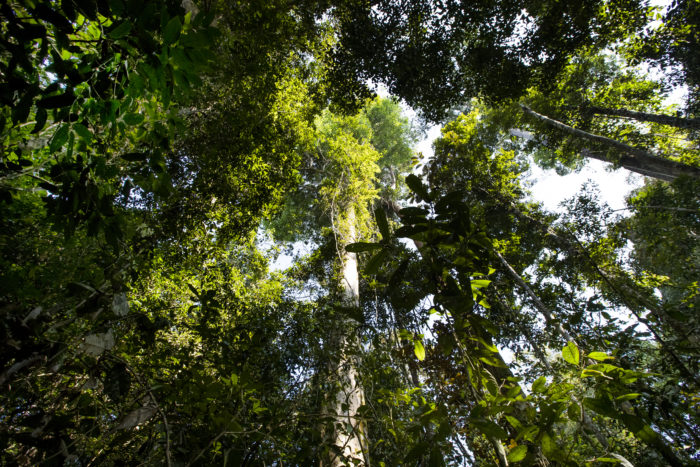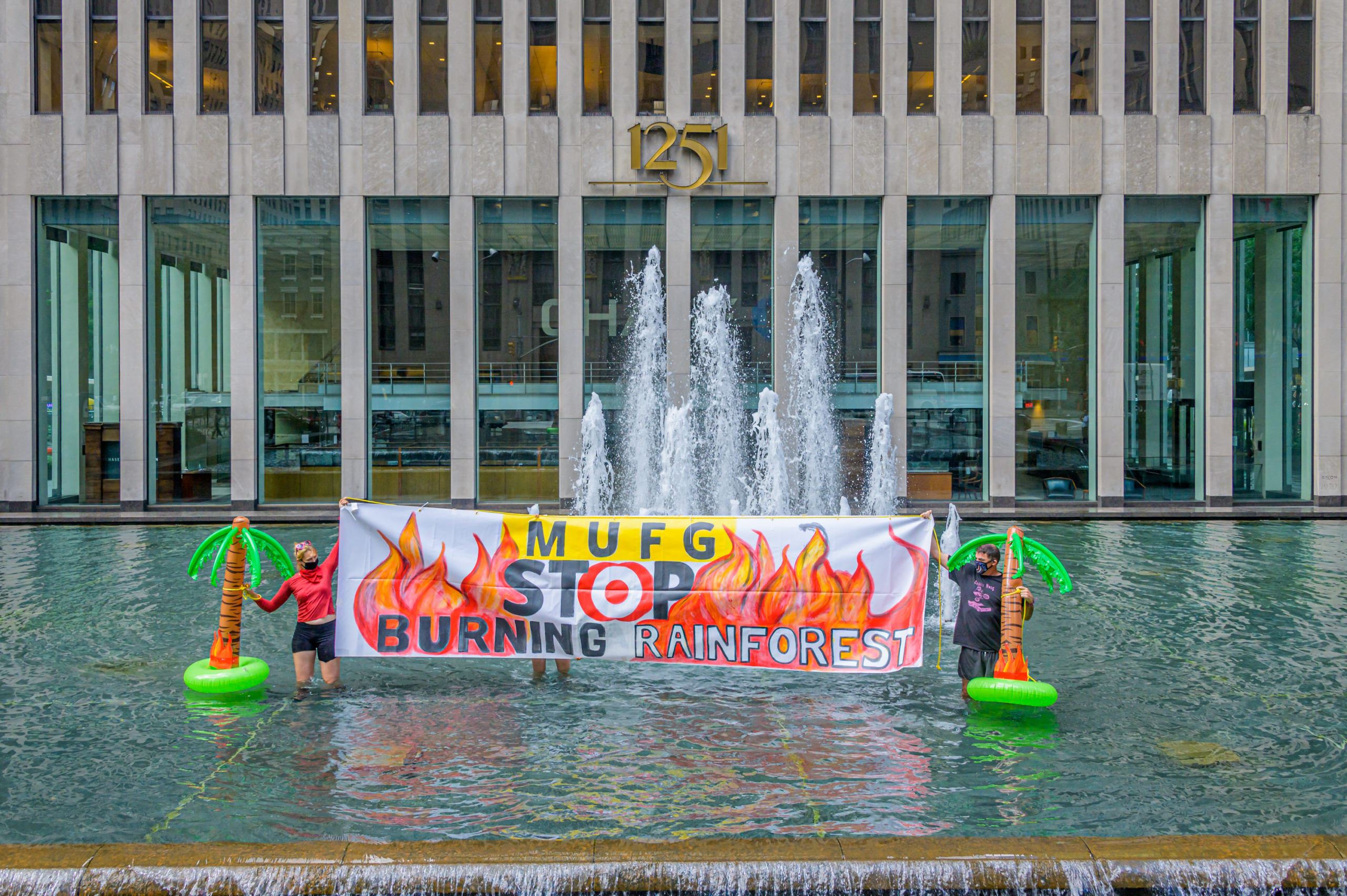Mitsubishi UFJ Financial Group (MUFG) –- the parent company of Union Bank in the U.S. — is Japan’s largest bank. It’s not only financing the construction of more coal plants and more dirty pipelines around the world, but it’s also aiding the destruction of some of the most critical carbon sinks on the planet – tropical forests and peatlands. Its reckless financing has been a double whammy on the climate and catastrophic for biodiversity and Indigenous communities.

MUFG: Three times guilty on climate and forest destruction
Simply put, MUFG is knowingly destroying the climate for profit and is undermining a sustainable future. MUFG is the largest Asian financier of fossil fuels in the world, and the 6th largest fossil bank globally, having provided over $118 billion in loans and underwriting to all fossil fuels since the Paris Agreement. MUFG is also the largest financier of rainforest destroying palm oil that’s from an OECD country. Here are some of their most shameless activities:
- Coal: Right now, MUFG is planning to finance a controversial 1.2 GW mega coal plant in Vietnam called Vung Ang 2, blasting unnecessary CO2 into the atmosphere for decades, despite its public pledge to phase out coal power financing.
- Tar Sands: MUFG is the largest Asian funder of the tar sands sector, and the big money behind Enbridge’s “Line 3”, the controversial tar sands pipeline leading from Alberta through Indigenous lands in Minnesota to the Great Lakes. If built, it would reportedly add annual carbon emissions equivalent to another 50 coal plants! MUFG is also financing Keystone XL, which President elect Biden has pledged to cancel. Both of these pipeline projects are being heavily opposed by Indigenous communities because of the threat to Indigenous rights and their livelihoods.
- Palm Oil: And if that were not bad enough, MUFG is one of the biggest financiers of Conflict Palm Oil in the world, including companies complicit in destroying Indonesia’s Leuser Ecosystem – the last place on Earth where Sumatran tigers, orangutans, rhinos, and elephants live together in the wild. Palm oil has been the leading driver of deforestation in Southeast Asia, and is also linked to labor exploitation, including by MUFG’s clients.
MUFG financing has been particularly devastating during this pandemic, when forest fires are compounding the effects of the COVID crisis. MUFG’s clients have been directly linked to the devastating fires we’re seeing around the world, especially in places like Indonesia where its clients have been caught using fire to clear forested land and peatlands for palm oil and pulp plantations, causing severe climate impacts.

What is MUFG doing about it?
The short answer: not nearly enough.
Last year, MUFG endorsed the UN Principles for Responsible Banking and publicly committed to align its business strategies with the Sustainable Development Goals and the Paris Climate Agreement.
But MUFG’s commitment to sustainability is so far only lip service. MUFG’s social and environmental policies that govern its financing of fossil fuels and commodities driving deforestation make no commitment to phase out fossil fuels or stop financing deforestation, both of which are absolutely necessary to achieve the Paris Climate Agreement goals.
As one of the largest banks in the world, MUFG can have a major influence on the rest of the banking sector. Isn’t it time for MUFG to put their money where their mouth is and make sure their financing is contributing to our sustainable future?
